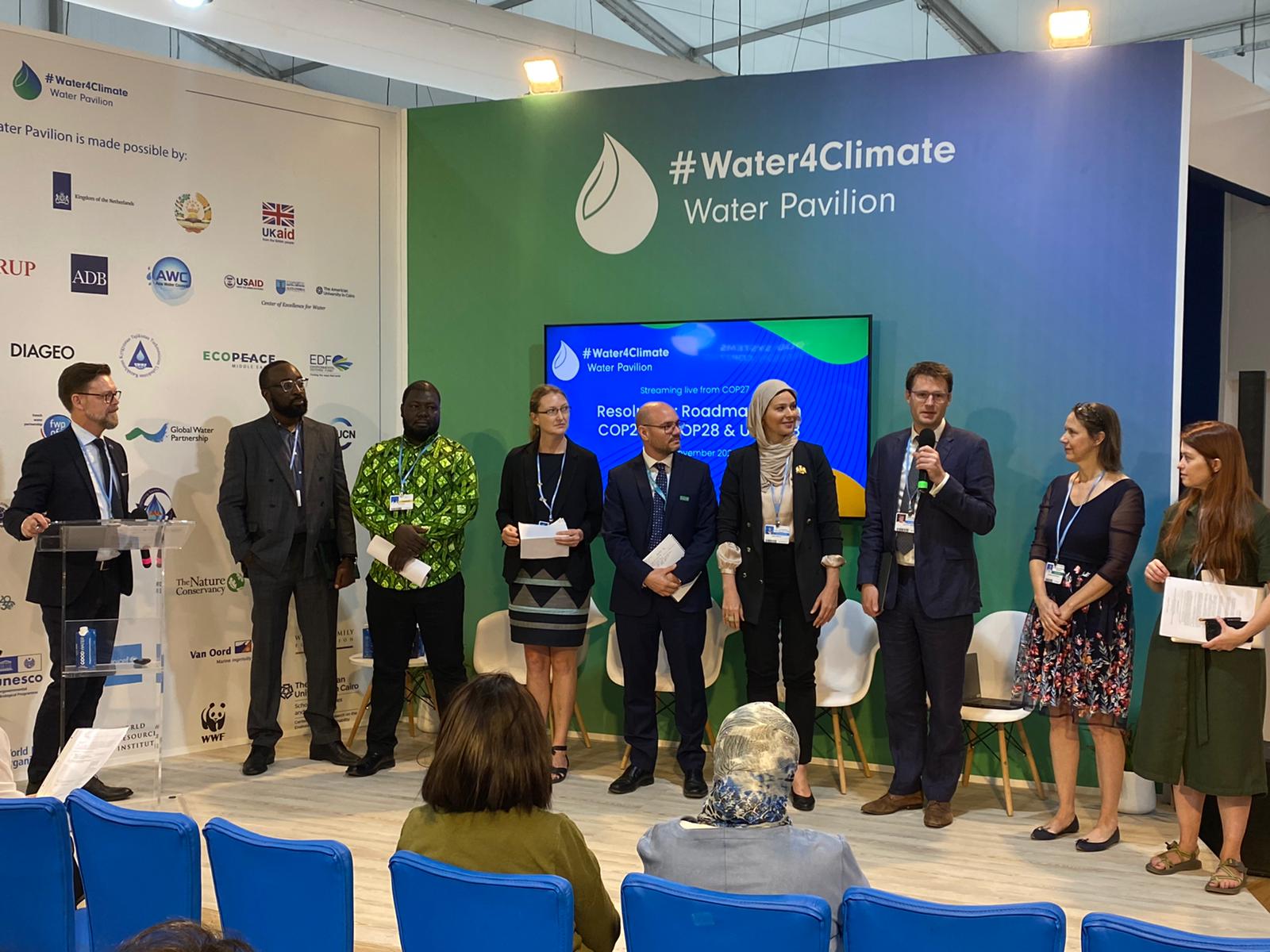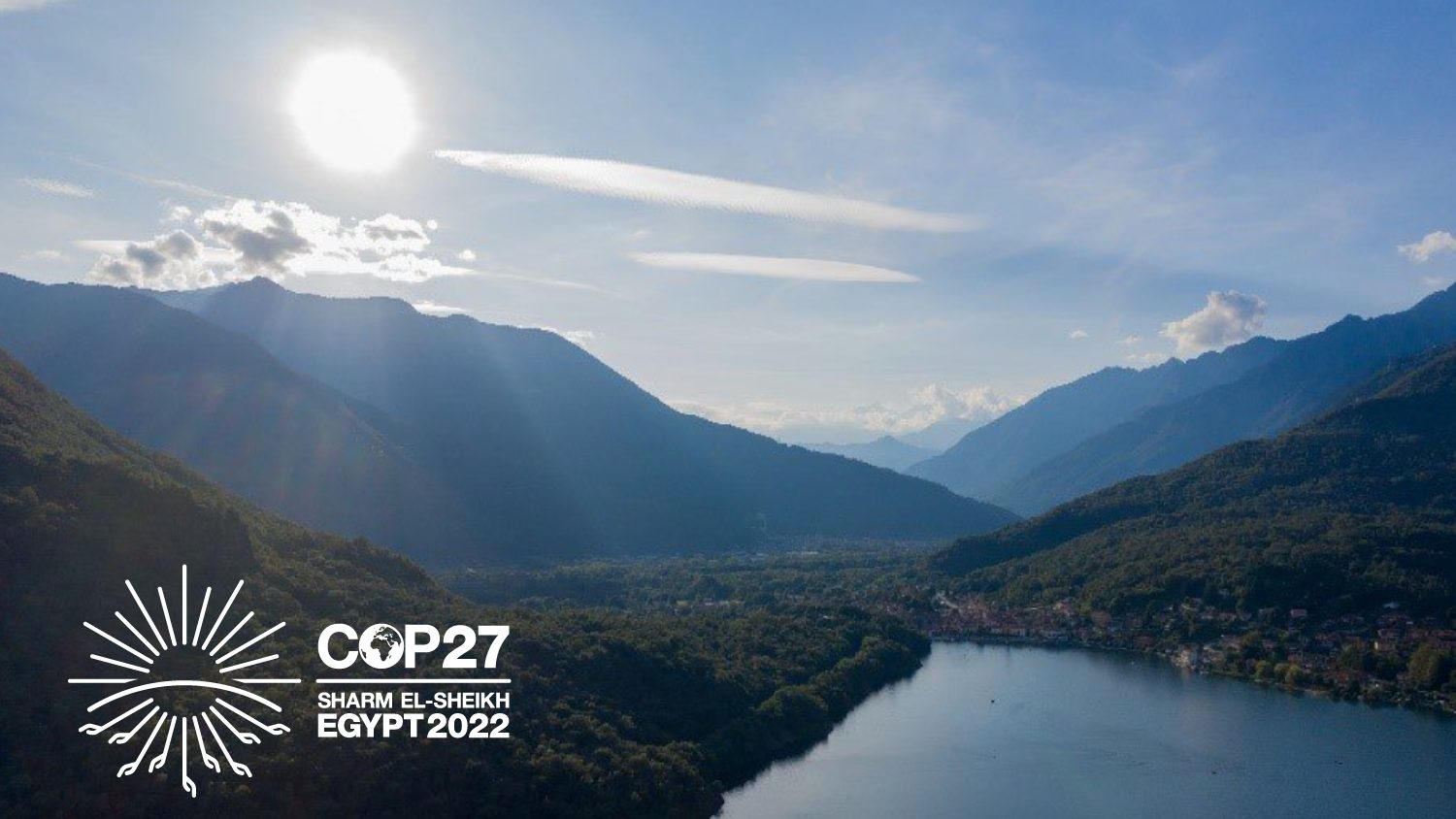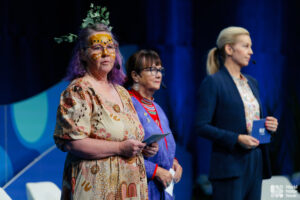COP27 is a (small) breakthrough for water in climate action
The climate meeting COP27 failed to take the bold steps needed, but there are still a few encouraging signs. One example is how water was more visible than ever throughout the meeting and for the first time made it into the final declaration of a climate COP. Hopefully we are starting to see a real breakthrough for water in climate action, which is indispensable to tackle global warming.
When the UN Framework Convention on Climate Change (UNFCCC) was first formulated 30 years ago, there was no mention of water. Today we know much more about the pressure global warming is putting on the water cycle, not least after the most recent report from the Intergovernmental Panel on Climate Change.
SIWI participated in the climate conference COP27 6-18 November to raise awareness of this research and advocate for science-based climate strategies with water at the core. If water is not considered in climate planning, countries are likely to make costly policy mistakes that jeopardize the necessary fast transitions to low-emission societies.
“Scientists are starting to have a clearer understanding of the role of water for both climate adaptation and mitigation, which policymakers need to know about to make informed decisions. It is welcome that COP27 highlights the role of water and that more countries invest in powerful water-related climate solutions”
SIWI made an important contribution by launching a landmark report with the first-ever summary of current scientific knowledge about the role of water for climate mitigation. The work, involving five institutions, has been led by SIWI’s Dr Malin Lundberg Ingemarsson who presented the results in a session at COP27 together with other researchers including Professor Johan Rockström from the Potsdam Institute for Climate Impact Research. The report analyzes how water can contribute to more effective climate mitigation within for example landscape management, food systems, wastewater treatment and energy production.
In addition to releasing the report, Malin Lundberg Ingemarsson participated in other sessions, for example on the role of forests. SIWI’s Ruth Mathews and José Murillo took part in COP to share knowledge about climate-smart water management and the source-to-sea approach which has been met with great interest. The source-to-sea methodology is also mentioned in the report on climate mitigation as a best-case example.
SIWI’s Anton Earle participated in many discussions to raise awareness of the need to make investments available to smallholder farmers, not least non-irrigated farms in Sub-Saharan Africa who are hard hit by intensified drought. A couple of years ago, this might have been considered a fringe topic at a UNFCCC climate meeting, but COP27 had a pronounced Africa focus and was set against the backdrop of a growing hunger crisis. More and more research also show how water-smart farming can reduce greenhouse gas emissions.
When COP27 ended, it was clear that water had permeated the entire conference in a way not seen before:
- The first-ever Water Day. On 14 November, the official COP27 featured a special Water Day, with water-related discussions across the conference. Torgny Holmgren was a speaker in the official programme, alongside heads of governments and UN agencies. Torgny took the opportunity to talk about “green water” and call for more investment in rainfed farming. Also other SIWI colleagues contributed water perspectives in sessions on various topics.
- Water Pavilion. SIWI was also the implementing partner of the Water Pavilion in the Blue Zone, where negotiators and decision-makers could learn about the latest thinking on water in climate action. All the activities can be watched online afterwards – you find them here.
- Several water-related initiatives were launched, including the Sharm El-Sheikh Adaptation Agenda, the Action on Water Adaptation and Resilience (AWARe) initiative and the Food and Agriculture for Sustainable Transformation Initiative (FAST). Water and Climate Leaders issued a statement urging heads of state and government to take more integrated water and climate action.
- A link to the UN 2023 Water Conference. COP27 established a close link to next year’s United Nations conference on water. The last day of the Water Pavilion was Resolution Day, to discuss how lessons from COP27 should feed into the upcoming water conference as well as next year’s COP. The event was moderated by SIWI’s Thomas Rebermark and featured many high-level speakers.
As part of the Marrakech Partnership on Global Climate Action, SIWI was one of the organizers of the event The power of water: the unexplored potential for climate resilience to showcase how water can contribute to tackling a broad range of climate-related issues, based on the Climate Action Pathway for Water. - Water in the final COP27 declaration. For the first time, water was included in the introduction to the final declaration of a climate COP. The text recognizes “the critical role of protecting, conserving and restoring water and water-related ecosystems in delivering climate adaptation benefits and co-benefits, while ensuring social and environmental safeguards”.
The wording about water in the final declaration does however not reflect the real role of water for climate since it only refers to adaptation – it fails to mention how crucial water is also for mitigation. In the year ahead, SIWI will work tirelessly to make that knowledge more widely available so that more countries will place water at the heart of their climate strategies. Only then can we make the fast progress on climate that the world really needs.









